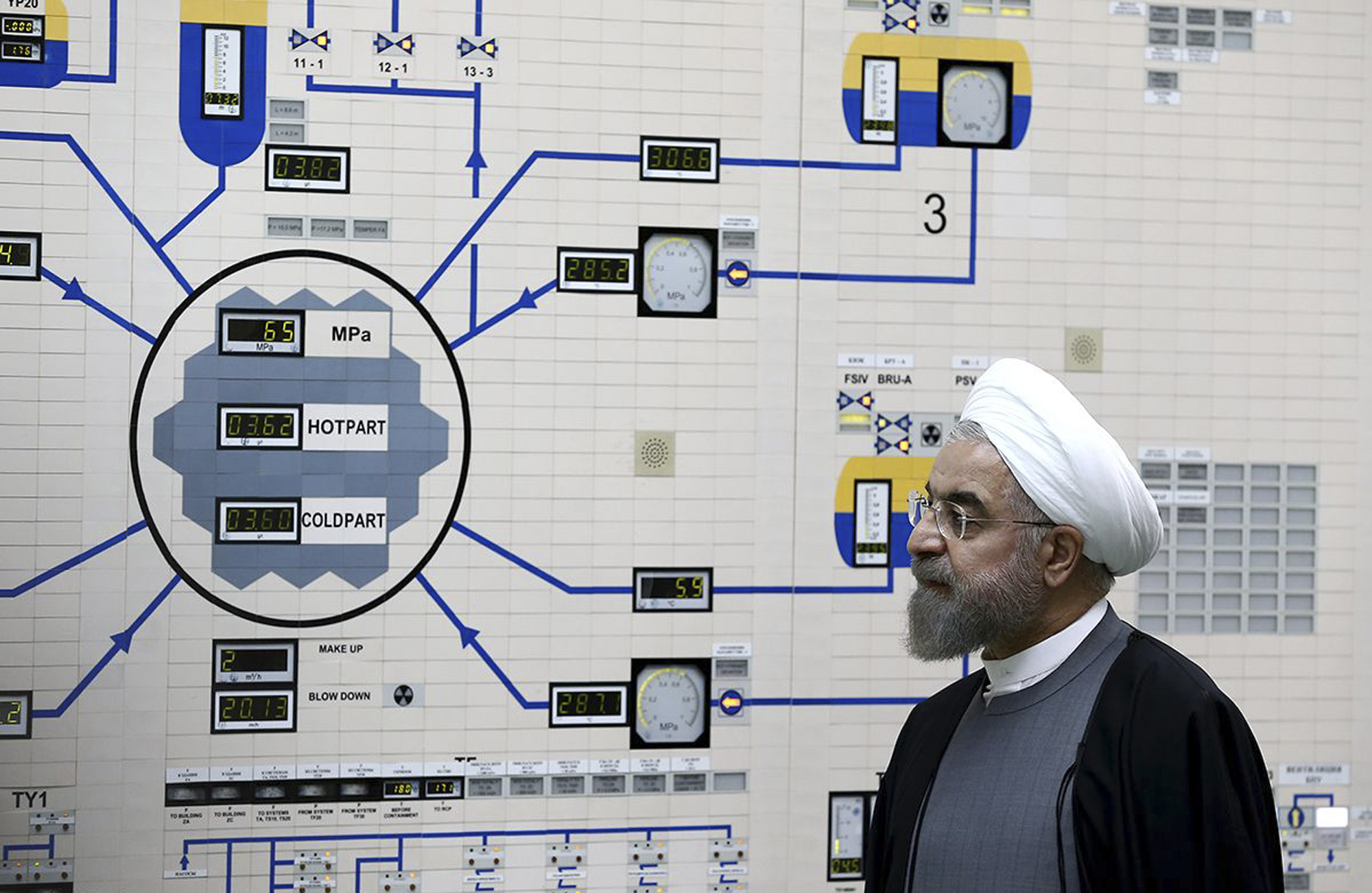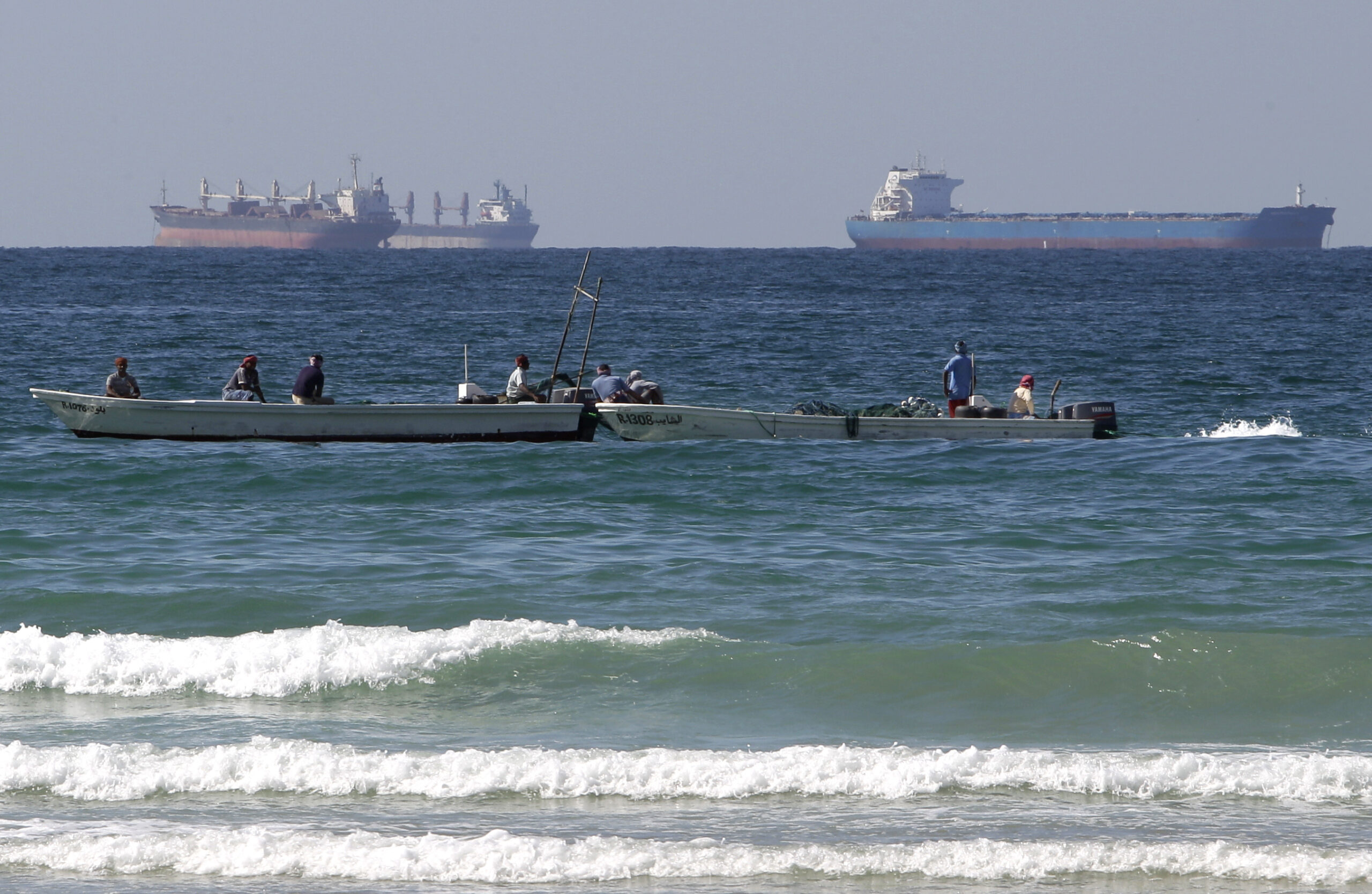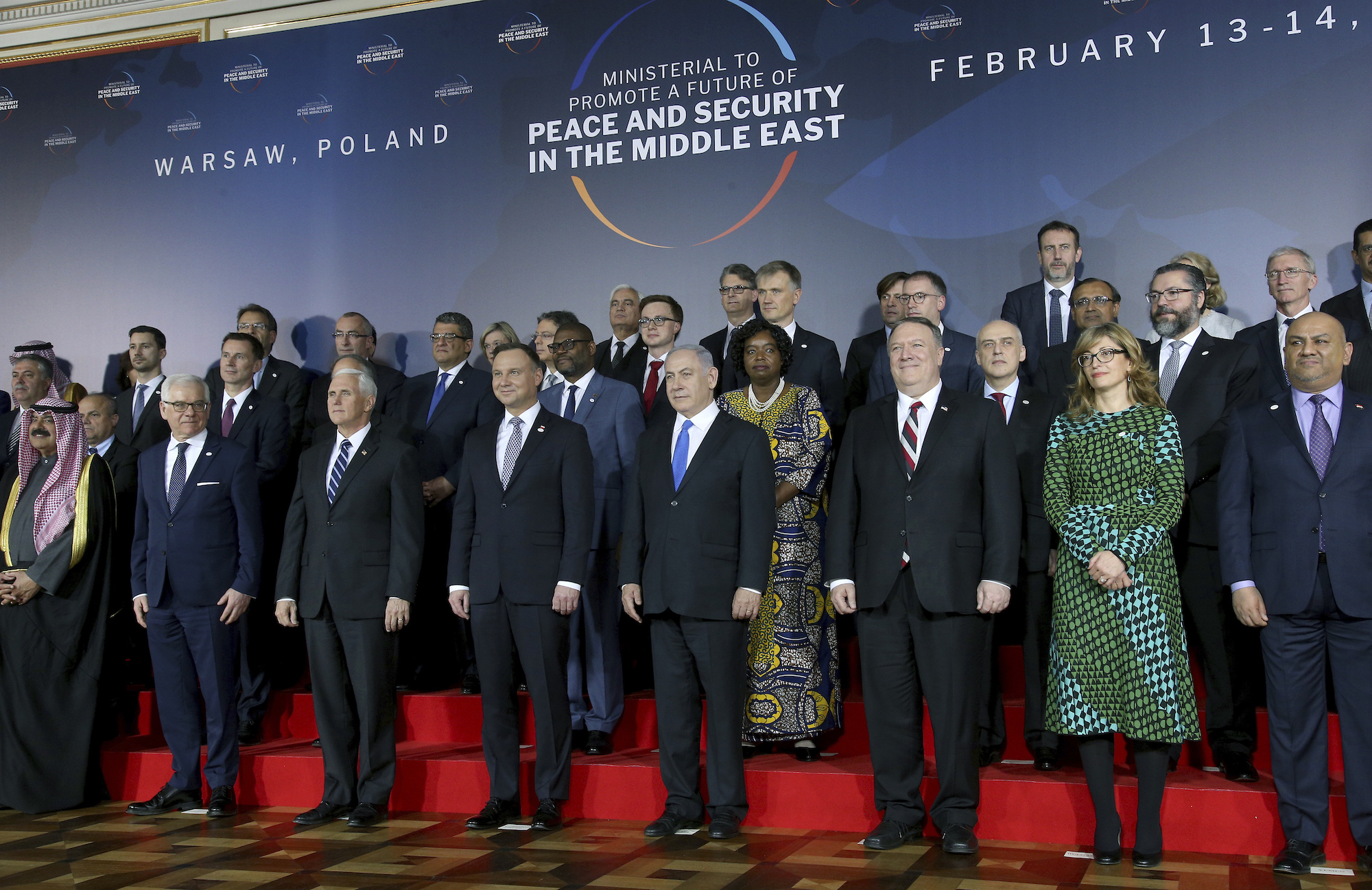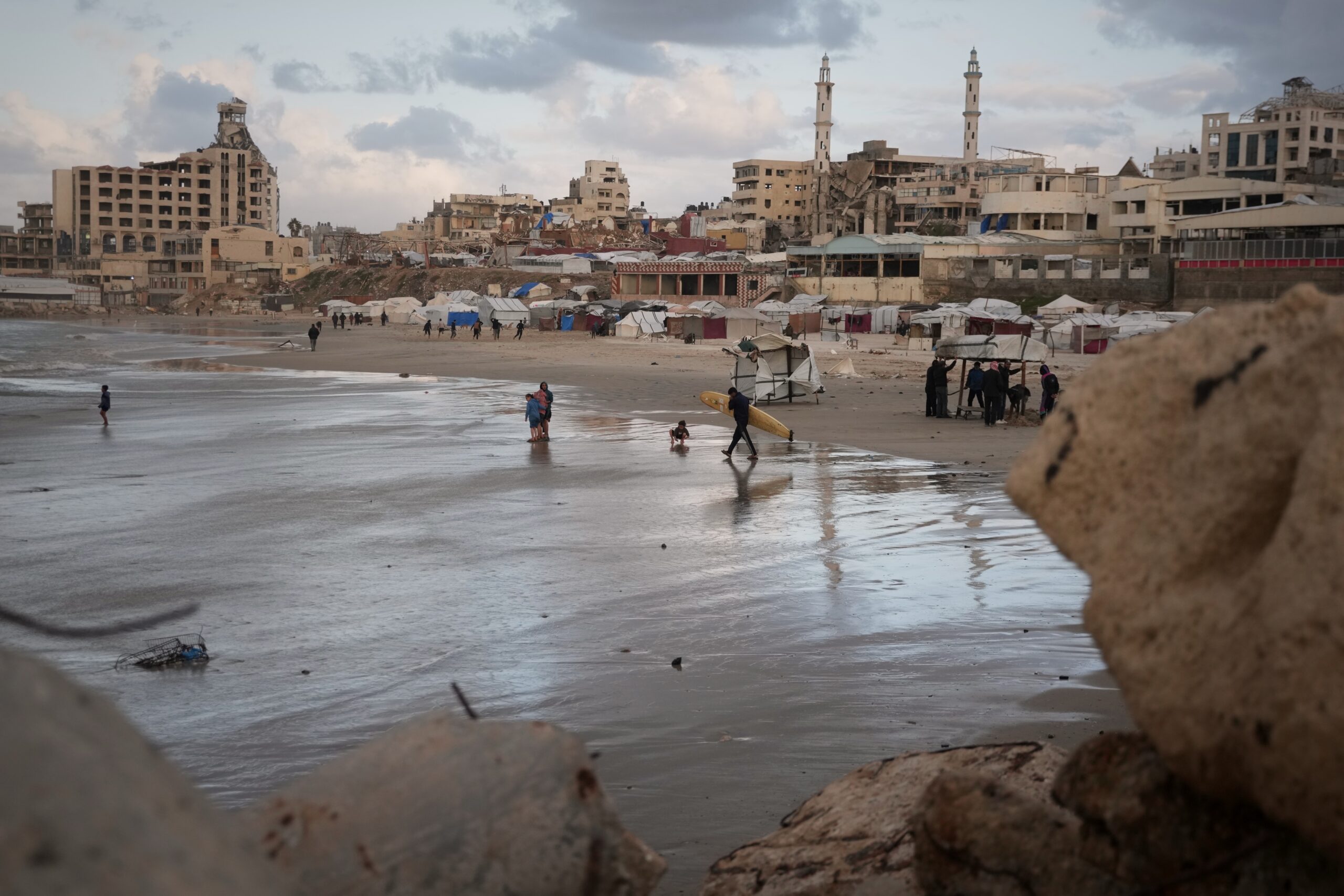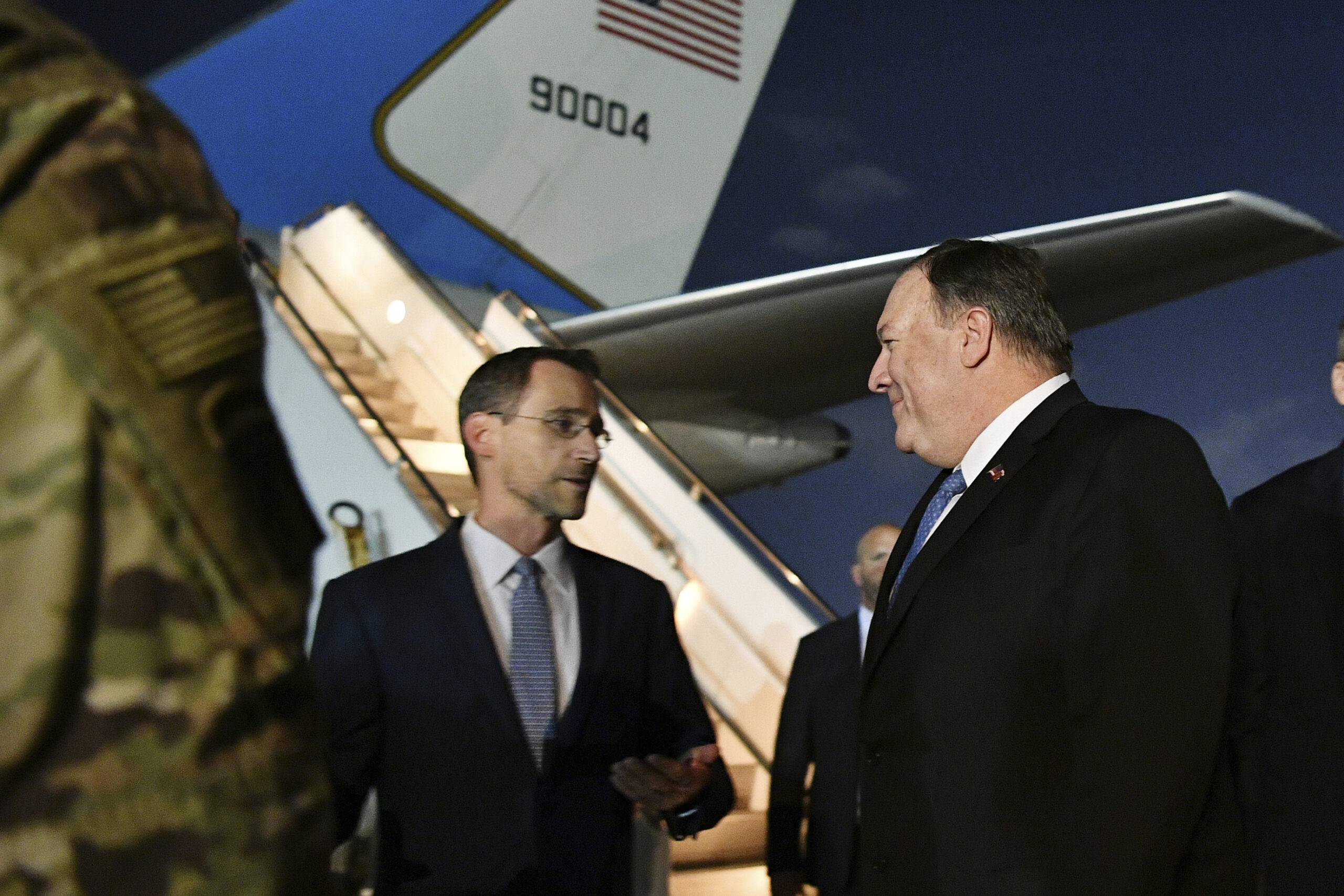
Mounting tensions between Washington and Tehran have recently reached a boiling point, leading many observers to wonder if key factions in each government are quietly hoping for a military confrontation, or if miscalculation, misperception, and miscommunication could lead to the unintentional ignition of a conflict that no one wants.
These frictions have been steadily mounting for several years, following the implementation of the Joint Comprehensive Plan of Action nuclear deal and the refusal of Iran’s senior-most leaders to discuss any additional non-nuclear concerns. Any hopes the deal would moderate Iran’s aggressive regional policies were dashed. Tensions intensified with the election of Donald J. Trump as U.S. president, who campaigned denouncing both Iran and the JCPOA. Shortly after Trump’s inauguration, his first national security advisor, retired General Michael Flynn, put Iran “on notice” that a new era of U.S. pressure and skepticism was at hand. That culminated with the announcement of the U.S. withdrawal from the JCPOA in May 2018 and the initiation of a campaign of “maximum pressure” against Tehran, mainly in the form of far-reaching new U.S. economic sanctions.
Gulf Arab countries were nervous about President Barack Obama’s nuclear negotiations with Iran, in large part because they did not attempt to address Iran’s regional conduct and hegemonic ambitions. However, these countries did not initially urge the United States to withdraw from the JCPOA, which they hoped would be used as leverage to change Iran’s regional policies. And, there is no evidence that any of the Gulf Arab governments have been promoting a military conflict between Washington and Tehran.
The Gulf Arab states appear to understand the limits of what Washington might be willing to do, unless attacked, regarding Iran. They seem fully aware that a U.S. invasion and occupation of Iran, akin to the 2003 invasion of Iraq, is not in the cards. They seem to realize that a series of inconclusive military engagements such as airstrikes or skirmishes could leave them worse off than they already are. And they apparently understand, perhaps better than some U.S. officials, that regime change cannot be imposed on a large and well-organized country from the outside, particularly through mere financial pressure and political machinations.
Therefore, what the Gulf Arab countries undoubtedly seek is what they in fact say they want: not regime change as such but rather a significant change to Iran’s regional and foreign policies, particularly an end to Iran’s meddling in the Arab world, destabilizing of neighboring Arab states through nonstate militias and sectarian armed groups, and efforts to export its revolutionary agenda to the region. And while they welcome a wide range of U.S. and other pressures on Iran to achieve that goal, they do not appear to be pressing Washington toward an all-out military conflict.
As always, there is a range of views within and between the six Gulf Cooperation Council countries. Saudi Arabia, the United Arab Emirates, and Bahrain are strongest in categorically opposing Iran’s regional agenda. Qatar has always had to moderate its policies toward Iran because of their shared natural gas field that provides Doha with almost all its income, and, since a Saudi- and Emirati-led boycott against it began in June 2017, Iranian-provided civil aviation routes and other benefits. Oman has long maintained good relations with Iran, and Kuwait has established itself as the Gulf Arab mediator with the Iranians.
Some Gulf Arab leaders have welcomed U.S. sanctions and “maximum pressure” against Iran, which, in the short run, have led to diminished resources for Tehran to fund its armed proxies in Iraq, Syria, Lebanon, Yemen, and elsewhere in the Arab world. But privately there is a real concern among key Gulf Arab leaders that the gains of this campaign could be squandered without a political mechanism for translating them into agreements that involve changes in Iran’s behavior. They have always viewed the endgame as the establishment of a new, and less threatening, arrangement with Tehran about the limits of Iran’s ambitions and the threat it poses to regional stability.
These countries will almost certainly welcome statements by senior U.S. and Iranian leaders that neither country wants or expects a war, even if they wonder whether smaller factions in both might welcome a limited military confrontation for domestic political or ideological purposes. Yet U.S. and Iranian officials continue to accuse each other of trying to provoke a full-scale confrontation and tensions have risen to the point where a miscalculation or misinterpretation could lead to an unintended conflict.
In recent days, Saudi Arabia and its closest allies appear increasingly leery of the prospect of a military conflict. Perhaps the strongest signal of this was the New York Times commentary co-authored by Saudi analyst Abdulaziz Sager and Iranian former diplomat Hossein Mousavian, each of whom is known to be close to – and therefore unlikely to break ranks with – key leaders in their respective countries.
Sager and Mousavian wrote that “now is the time to explore a new foundation for a lasting peace in our region … because the situations in the historic conflict zones are ripe for diplomacy.” Their op-ed points the way forward to renewed dialogue between Tehran and Washington, and signals that Saudi Arabia, at least, felt it necessary to announce that it is open to such a process with Iran, implying Washington should be as well. It’s also a clear sign that Riyadh does not want to be seen as working in tandem with Israel, which has a very different set of concerns and priorities, in pushing the Trump administration into war.
It’s especially noteworthy that this comes at a time of increased Gulf Arab anger and anxiety given recent sabotage attacks against international oil tankers off the UAE coast and Houthi drone attacks against Saudi oil pumping stations. But even as such attacks prompt outrage, they also serve as useful reminders of the cost of conflict.
The Sager-Mousavian commentary not only indicates an appreciation of those costs, but virtually confirms the existence of a rumored high-level “Track II” or diplomatic backchannel between influential Gulf Arabs and Iranians. That suggests both parties are potentially ready for negotiations as brinksmanship begins to play itself out and the limits of what is achievable under the current circumstances are reached. Trump, too, campaigned against large-scale foreign commitments such as the Iraq and Afghan wars, and is unlikely to view an avoidable conflict with Iran as politically acceptable. Yet it’s possible that hard-liners in his administration such as National Security Advisor John Bolton and others, as well as extremists in Iran and elsewhere, could push the situation to a tipping point.
In the past, Oman has played a crucial role in providing a venue for U.S.-Iranian negotiations, and if the parties are looking for an offramp before they reach a broader conflagration neither wants nor needs, that could happen again. Europeans, too, could play a useful role in developing a new understanding with Iran based on economic and trade carrots and sticks that maintains Iranian compliance with its JCPOA commitments. This could then be expanded to include the two remaining key concerns of the Trump administration and its Middle East allies: Iran’s regional conduct and missile development. In the past, that United States’ European allies have served as the initial interlocutors with Tehran, sketching out the essential framework of agreements later involving Washington, and they could again play that role. Alternatively, Russia, which has good relations with both Iran and Gulf Arab countries, as well as Trump personally, could be a useful bridge away from a looming confrontation.
A resolution to the Yemen war, or at least some progress toward a negotiated end to the conflict, which once again seems possible given redeployments of Houthi forces from key Red Sea ports, could serve the interests of both Gulf Arab states and Iran and might be a good starting point. Maritime security, as well, has emerged as an obvious mutual imperative that could be cautiously explored between Saudi Arabia and its allies on the one hand and Iran and its allies on the other. This kind of sequential framework for Arab-Iranian dialogue remains a viable option.
An effort to calm frayed nerves seems to be developing as Trump continues to leave the door open to talks with Iran and reports suggest he has strongly pushed back on hawkish advisors, and UAE Minister of State for Foreign Affairs Anwar Gargash said his country is “very committed to de-escalation,” and would not to be baited into crisis. If an effective and dynamic Middle Eastern, European, or even Russian track with Iran can be developed, it can serve to further reduce tensions and eventually either expand to include the United States or lay the groundwork for new direct dialogue between Washington and Tehran. As things stand, the parties are dangerously close to a conflict no one wants or needs. But it’s reassuring to see that constructive and well-positioned voices are already seriously looking for a way out.
The views represented herein are the author's or speaker's own and do not necessarily reflect the views of AGSI, its staff, or its board of directors.


